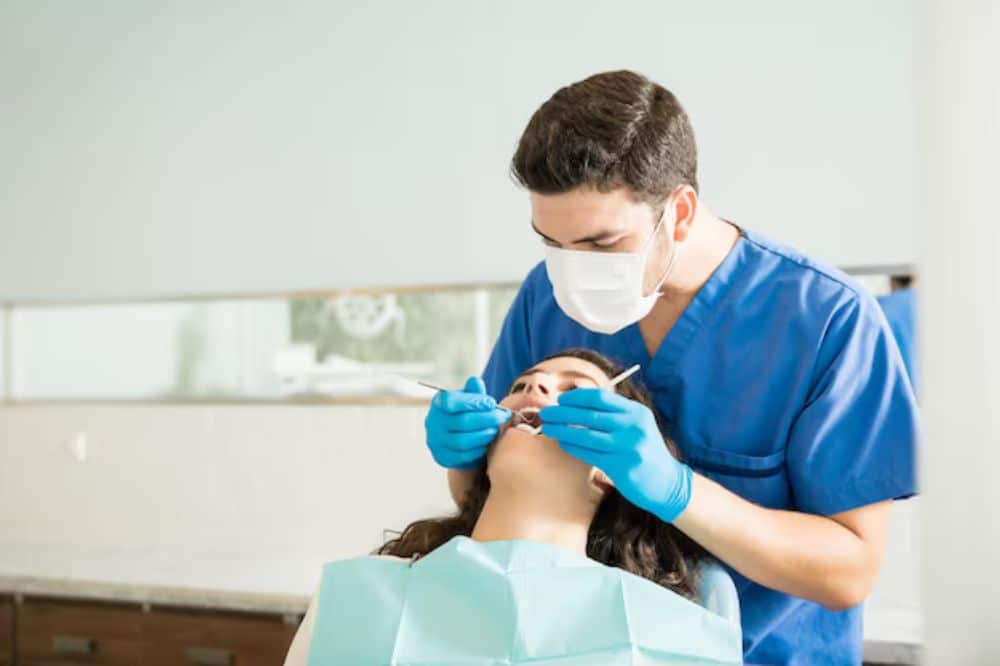When people think of a perfect smile, they often picture bright, white, straight teeth. But there’s a crucial part of your smile that gets overlooked far too often: your gums. Healthy gums are the unsung heroes behind every confident grin. Without them, even the whitest teeth won’t look or feel their best. Periodontal health is more than just an aesthetic detail—it’s the very foundation of oral wellness.
What Is Periodontal Health?
Periodontal health is simply how healthy your gums and the parts that hold your teeth in place really are. “Periodontal” comes from the Greek words meaning “around the tooth.” Your gums, periodontal ligaments, and jawbone all work together to keep your teeth anchored and healthy.
When your gums are inflamed or infected, it can lead to periodontal disease, commonly known as gum disease. This can range from mild gingivitis to advanced periodontitis, which can result in tooth loss and other health complications.
The Role of Gums in a Beautiful Smile
Gums frame your teeth. Just like a picture needs the right frame to stand out, your teeth rely on healthy, pink gums for visual balance. Receding, swollen, or bleeding gums can make even perfectly aligned teeth look unhealthy.
Moreover, gum issues often cause bad breath, redness, and sensitivity—all of which detract from an attractive smile. When gums are in good shape, your teeth look cleaner, your breath smells fresher, and your smile lights up a room.
Signs Your Gums Need Attention
Gum disease can be sneaky. It often starts with subtle signs, which many people ignore until the damage is more severe. Here are common symptoms to watch for:
- Red, swollen, or tender gums
- Gums that bleed easily when brushing or flossing
- Persistent bad breath
- Receding gum line
- Loose or shifting teeth
If you see any of these red flags, call us right away. Tackling problems early keeps your smile—and your body—safer.
How Gum Health Impacts Your Overall Well-Being
Strong, pink gums keep teeth steady, but their job doesn’t stop there. Research now shows that unhealthy gums can trigger trouble all over the body. The inflammation from gum disease has been linked to:
- Heart disease
- Diabetes
- Stroke
- Lung infections
- Problems during pregnancy
Think of your mouth as the main road into the body. When gums swell and bleed, bacteria hitch a ride into the bloodstream, sparking wide-ranging inflammation that raises the odds of long-term illness.
Daily Habits That Protect Your Gums
Caring for your gums doesn’t require complex routines. Just a few simple habits can go a long way in preserving your periodontal health:
1. Brush Gently, But Thoroughly
Use a soft-bristled toothbrush and fluoride toothpaste. Make sure to brush for at least two minutes twice a day. Don’t scrub aggressively—gentle, circular motions are best.
2. Floss Every Day
Brushing alone can’t remove plaque from between your teeth. Flossing is essential to clean the tight spaces your toothbrush can’t reach.
3. Rinse With Antimicrobial Mouthwash
Mouthwash can reduce bacteria and freshen your breath. Look for one that’s alcohol-free and specifically targets gum health.
4. Eat a Balanced Diet
Cut back on sugary snacks and processed meals because they can help plaque form in your mouth. Instead, fill your plate with whole fruits, crisp veggies, lean meats, and plain dairy.
5. Stay Hydrated
Saliva helps wash away food particles and neutralize acids. Drink plenty of water throughout the day to support your body’s natural cleaning process.
Regular Dental Visits: Your Gum Health Check-In
Even the best at-home care can’t replace professional cleanings and evaluations. Dentists can spot signs of gum disease before you notice symptoms. They can also clean below the gum line, where bacteria tend to hide.
Most people should see their dentist every six months. If you’ve had gum issues before, your dentist may recommend more frequent visits or refer you to a periodontist for specialized care.
Kids and Gum Health: Starting Early Matters
Good habits start young. Children should learn proper brushing and flossing techniques as soon as they have teeth. Pediatric dentists can help spot early signs of gum problems and provide guidance on prevention.
Setting the tone for oral care in childhood helps ensure a lifetime of healthy gums and teeth. Plus, kids who get used to regular dental visits are less likely to fear the dentist as adults.
Gums and Aging: Why Older Adults Need Extra Care
As we age, our gums naturally become more susceptible to recession and disease. Medications, dry mouth, and general wear and tear can all affect gum health.
Older adults should be especially vigilant with their oral hygiene routines and never skip dental checkups. What seems like a minor irritation can quickly turn into a serious issue if ignored.
Ready to Prioritize Your Gum Health?
At Aria Dental Studio, your periodontal health is our top priority. If you’re looking for a trusted Downtown Dentist in Vancouver, we’re here to help you build a strong foundation for a lifetime of healthy, beautiful smiles.



